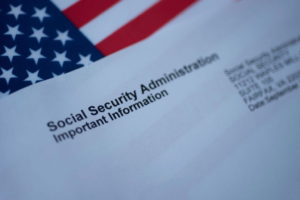
N2Care’s MedCottage a Portable Dwelling for Elder Relatives
Oct 13, 2010
Gene L. Osofsky, of the law firm Osofsky & Osofsky, offers some pertinent commentary about a biometric shelter that now has a working prototype.
Hayward, CA (Law Firm Newswire) October 8, 2010 – Caring for aging family members now has a new wrinkle. Last month, a small Salem, Virginia-based firm called N2Care trotted out its first prototype of a portable, high-tech dwelling intended to provide temporary shelter for a sick or elderly relative in their family’s backyard. Filled with biometric technology, the 12-by-24-foot prototype would allow a family or health-care providers to monitor the condition of an aging or disabled relative while foregoing costlier options such as confinement in a long term care facility. The brainchild of a Methodist minister, the MedCottage contains air-filtration systems, video links, devices that allow the remote monitoring of a patient’s vital signs and sensors that could detect an occupant’s fall.
“It’s new, but it’s intriguing,” says Gene L. Osofsky of Osofsky & Osofsky, a California-based firm geared to the practices of estate planning and the intricacies of elder law. The concept inherent in the MedCottage has already been endorsed by the Virginia General Assembly via HB1307, which would supersede local zoning laws and allow families to install such a dwelling on their property with a physician’s order.
But will the concept catch on beyond Virginia? It has also received a cautious endorsement from AARP; the lobbying group for Americans aged 50+, which has said that local zoning laws pose one of the bigger obstacles to making such dwellings a practical solution to caring for aging family members in what it calls “accessory dwelling units.”
Osofsky has a wait and see attitude about the MedCottage, and notes objections harbored by the temporary shelter’s naysayers. “Detractors have taken to calling the innovation the ‘granny pod’ and predicted that accessory dwelling units could create conflicts between neighbors who find the dwellings unsightly,” Osofsky says. “And some critics also worry that the setup could foster instances of neglect involving the persons placed in the dwellings.”
But as upwards of 80 million baby boomers edge toward retirement age, so-called “granny pods” might prove to be a viable alternative to nursing homes. “It’s a lot like a modular hospital room that one might find in an aid mission,” Osofsky says. “And there’s also a comfort factor involved for the occupant of such dwellings – their loved ones are only a few steps away.”
To learn more or to contact a Medi-Cal Planning Lawyer, California Elder Law Attorney, or California Elder Law Lawyer, visit http://www.lawyerforseniors.com.
Law Offices of Osofsky & Osofsky
1290 “B” Street, Suite 208
Hayward, CA 94541
Phone: (510) 247-2555


